Oscar Wilde: Biography, Quotes, Books, Poems, About, Stories
Oscar Fingal O'Flahertie Wills Wilde was born on October 16, 1854. He was a dramatist and poet from Ireland. After working in various formats during the 1880s, Wilde rose to prominence as a dramatist in London in the early 1890s.
He is well known for;
- Plays and epigrams,
- The book The Picture of Dorian Gray,
- The situation surrounding his criminal conviction for sex offenses for performing voluntary homosexual intercourse in "one of the first celebrity trials," imprisonment, and
- Premature death from meningitis at the age of 46.
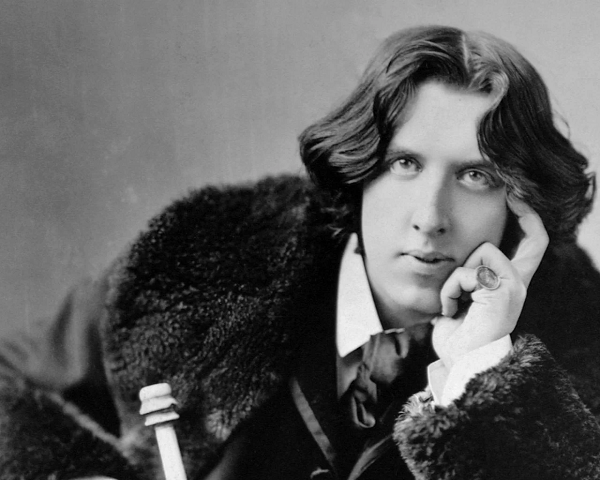
Early Life
Oscar Wilde was the second of three children born to an Anglo-Irish marriage, Jane, née Elgee, and Sir William Wilde, at 21 Westland Row in Dublin (now the site of the Oscar Wilde Centre, Trinity College). The age difference between Oscar and his brother William (Willie) Wilde was two years.
Jane Wilde was a niece (by marriage) of Charles Maturin (1780–1824), a writer, dramatist, and priest, who may have impacted Jane Wilde's creative career.
In 1848, she wrote poetry for the revolutionary Young Irelanders under the pen name "Speranza" (the Italian word for "hope"); she had been an Irish nationalist her entire life. She had the mistaken belief that she was of Italian ancestry.
The Young Irelanders read Oscar and Willie poems by Jane Wilde, who hoped to inspire in her kids a love of poetry. The ancient Greek and Roman paintings and busts in her home reflect her passion for the neo-classical Renaissance. Jane Wilde was a niece (by marriage) of Charles Maturin (1780–1824), a writer, dramatist, and priest, who may have impacted Jane Wilde's creative career.
In 1848, she wrote poetry for the revolutionary Young Irelanders under the pen name "Speranza" (the Italian word for "hope"); she had been an Irish nationalist her entire life. She had the mistaken belief that she was of Italian ancestry. The Young Irelanders read Oscar and Willie poems by Jane Wilde, who hoped to inspire in her kids a love of poetry. The ancient Greek and Roman paintings in her home reflect her passion for the neo-classical Renaissance.
The local Church of Ireland (Anglican) church, St. Mark's Church in Dublin, baptized Wilde as a child. After the church closed, the documents were transferred to the neighboring St. Ann's Church, Dawson Street. Father Prideaux Fox, a Catholic priest who became good friends with Oscar's mother around 1859, performed a second baptism, according to Davis Coakley. Jane Wilde often attended Mass at Fox's church in Glencree, County Wicklow, and brought her boys along, according to Fox's account published in Donahoe's Magazine in 1905. During this time, she requested that Father Fox baptize her boys.
Fox explained it as follows:
It was only a short time before she requested me to educate two kids. One of them would grow up as the future wayward genius Oscar Wilde. I'm not sure if she ever converted to Catholicism herself. After a short period, I christened these two kids with Lady Wilde in attendance.
In addition to his two full siblings, Oscar Wilde had three half-siblings who were born outside of marriage before his father's marriage: Henry Wilson was born in 1838 to a single woman, while Emily and Mary Wilde were born to a second woman in 1847 and 1849, respectively.
In addition to providing for their schooling and acknowledging the fatherhood of his "natural" or illegal children, Sir William made arrangements for their upbringing by family members rather than alongside his legitimate children in the home he shared with his wife.

Wilde's sister, Isola Francesca Emily Wilde, was born there on April 2, 1857, after the family relocated there in 1855. She was given the name Iseult in honor of the Irishwoman, Sir Tristan's lover, and Mark of Cornwall's bride. Her mother and she both had the name, Francesca, although her maternal aunt's name was Emily. She and Oscar shared a special bond.
Therefore, it devastated Oscar when she passed away at nine from a febrile illness. Isola gave them "a brilliant light of sunshine dancing around our home" in every aspect of their lives. The Wildes' new house had more space. The house quickly developed into a "unique medical and cultural environment" due to both his parents' success and their enjoyment of social life. Sheridan Le Fanu, Charles Lever, George Petrie, Isaac Butt, William Rowan Hamilton, and Samuel Ferguson were among the visitors at their salon.
Wilde had his education at home, where a German governess and a French nursemaid instructed him in their respective languages until he was nine. He enrolled in Portora Royal School in Enniskillen, County Fermanagh, alongside his brother Willie and went there from 1864 to 1871. Although Wilde was not as famous as his elder brother at Portora, his friends were fascinated by the hilarious and original school stories he told.
Later in life, he said that his exceptional speed reading made his former students call him a "prodigy." He stated that he could read two pages side by side at once and finish a three-volume book in 30 minutes while still remembering enough to summarise the story. His academic performance was exceptional, and in 1869 he achieved the fourth rank in the school in the field of classics.
He earned several awards, including the Carpenter Prize for the Greek Testament, for his ability to translate Greek and Latin passages orally. In 1871, he was one of just three Portora pupils to be awarded a Royal School scholarship at Trinity.
Wilde spent his summers in the Moytura House villa in Cong, County Mayo, that his father had constructed until he was in his early 20s. George Moore, the young Wilde, and his brother Willie played together. Isola passed away from meningitis at the age of nine. She is honored in the poem "Requiescat" by Oscar Wilde:
"Tread lightly. She is near
Under the snow
Speak gently. She can hear
the daisies grow."
Career
Nearly all of Wilde's significant works were written and published during the last ten years of his life. Wilde merged the supernatural aspects of the Gothic novel with the terrible crimes of decadent French literature in his solo work, The Picture of Dorian Gray, which was released in Lippincott's Magazine in 1890 and in book form, updated and enlarged by six chapters in 1891.
Reviewers accused Dorian of being immoral despite his self-destruction; nevertheless, Wilde claimed that art is inherently evil despite its seemingly moral conclusion. His critical perspective towards art was reaffirmed in Intentions (1891), a collection of previously released writings, by incorporating concepts from American painter James McNeill Whistler and French poets Théophile Gautier and Charles Baudelaire. A House of Pomegranates and Lord Arthur Savile's Crime and Other Stories, two collections of short stories and fairy tales that bear witness to his exceptional creative imagination, were both published in the same year.
The comedies he wrote for society were Wilde's biggest hits. In keeping with the rules of the French "well-made play" (with its social intrigues and manufactured means of resolving conflict), he used his contradictory, epigrammatic humor to develop a type of comedy that was unique to the English theatre of the 19th century. His first hit, Lady Windermere's Fan, proved that his humor could reanimate the sluggish French dramatic play.
The censor stopped Salomé's preparations that same year because they featured biblical figures. Salomé was a horrific drama written in French that was intended, in its author's own words, to make its audience shiver by depicting unnatural desire. An English version featuring the renowned pictures of Aubrey Beardsley was released in 1894 after it was first released in 1893.
The reviewer, William Archer, was persuaded by a second social play, A Woman of No Importance, released in 1893, that Wilde's works "must be considered on the very highest level of contemporary English theater." An Ideal Husband and The Importance of Being Earnest, two of Wilde's final plays, were staged back-to-back at the beginning of 1895. The latter, his finest accomplishment, transforms the comedic conventions into sarcastic epigrams that appear minor but ruthlessly expose Victorian hypocrisies.
His core theme frequently involves revealing a hidden fault or misbehavior and the ensuing shame. Wilde argued in his article "The Decay of Lying" (1889) that if life reproduced art, he roughly followed the pattern of his irresponsible desire for pleasure. Lord Alfred Douglas's father, the marquess of Queensberry, was also enraged by his close association with Lord Alfred Douglas, whom he had encountered in 1891.
At Douglas' urging, Wilde filed a criminal libel lawsuit after being suspected of being a sodomite by the royal house. However, the facts turned against Wilde, shattering his case, and he decided to dismiss the lawsuit. Wilde was advised by his friends to leave for France, but he declined since he couldn't accept that the world was ending. He was detained and told to appear in court.
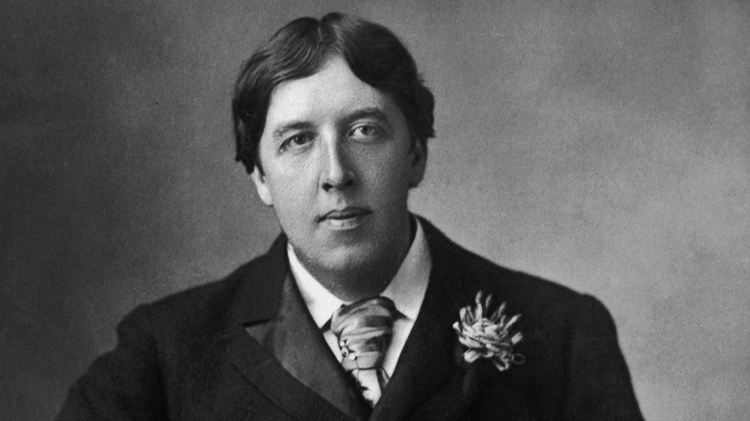
After receiving his production in May 1897 as a bankrupt, Wilde immediately departed for France in the hopes of resuming his writing career. The Ballad of Reading Gaol (1898), his only surviving piece, demonstrates his concern for cruel jail circumstances. Despite ongoing financial difficulties, he retained what George Bernard Shaw called "an undefeatable cheerfulness of soul" that kept him going. He also had visits from devoted friends like Max Beerbohm and Robert Ross, who would eventually serve as his artistic executor, and Douglas rejoined him. Wilde had an ear infection that caused severe meningitis, which caused his abrupt death. He was accepted into the Roman Catholic Church, which he had long respected, in his semiconscious dying moments.
Apprenticeship of an Aesthete: 1880s
Debut in society
After graduating from Oxford, Wilde returned to Dublin and reconnected with his teenage sweetheart, Florence Balcombe. She and Bram Stoker got married in 1878 when they became connected. Wilde replied to her, recalling "the two wonderful years—the loveliest years of all my childhood," when they had been close, despite his disappointment. His plan to "move to England, perhaps forever," was another declaration. He only made two quick trips to Ireland after doing this in 1878.
Wilde spoke to several friends about classics jobs at Oxford or Cambridge while still determining his next move. His entry for the Chancellor's Essay Award in 1879, in which he was still qualified to participate despite no longer being a student, was The Rise of Historical Criticism.
Considering his writing skill and knowledge of ancient history, the topic of "Historical Criticism among the Ancients" appeared tailor-made for Wilde. However, the prolonged, scholastic language made it difficult for Wilde to express himself. That year, unexpectedly, there was no reward given out.
He established himself as a bachelor in London with the remaining money he received from auctioning his father's properties. Wilde was registered as a guest in the 1881 British Census at 1 Tite Street, Chelsea (now 44 Tite Street), where social artist Frank Miles served as the head of the home.
Lillie Langtry, who was well-known in London's elite circles, met Wilde in 1877 in the studio of Frank Miles. English woman with the greatest gloss, during his formative years in London, Wilde placed a high value on Langtry. The two were close friends for a very long time, with Wilde helping her with her Latin and subsequently urging her to pursue acting as a career. He "had an incredibly interesting and appealing character," she said in her book, and "the smartness of his statements acquired economic benefit from his delivery style."
Since enrolling at Trinity College, he has written lyrics and poetry that have appeared in journals, particularly Kottabos and the Dublin University Magazine. At the age of 27, he released Poetry, a collection of his poems that had been updated and enlarged, in the middle of 1881. Even though the book's initial 750-copy print run was sold out, reviewers did not usually like it, with Punch, for instance, noting that "the poet is Wilde, but his poetry is mild."
The Oxford Union narrowly voted to reject the book for suspected plagiarism. The presenting copy was returned to Wilde by the librarian who had ordered the book for the library, along with a note of apology. Oscar Wilde's poem "Hélas!" contains the line "To float with every desire till my soul / Is a strung instrument on which all air masses can tune," according to Richard Ellmann's biography. It was a serious, vivid attempt to describe the dichotomies the author observed in himself.
In 1882, the book went through several printings. Over the following several years, Wilde gave numerous copies of it to the dignitaries and authors he met while on lecture travels; it was bound in a luxurious, glossy parchment cover (embossed with gilded flowers) and published on hand-made Dutch paper.
North America: 1882
Gilbert and Sullivan's Patience caricatured aesthetics since it was sufficiently popular then (1881). An English businessman named Richard D'Oyly Carte persuaded Oscar Wilde to give a lecture tour of North America, promoting Patience's US tour and this most lovable artist to the American people.
On the SS Arizona, Wilde traveled; he arrived on January 2, 1882, and left the following day. Due to its economic success, the tour, which was initially only supposed to last four months, ended up lasting over a full year. Wilde aimed to bring the beauty he perceived in art into the ordinary. It was a philosophical and practical undertaking since, when studying at Oxford, he surrounded himself with blue china and flowers and now lectures on interior decorating. Aestheticism and decadence are the subjects of a British Library essay by Carolyn Burdett. "The assertion that life imitates art rather than the other way around was a joke on his audience by Oscar Wilde."
He made an important argument, saying that literature and the arts had taught us to notice London fogs. These proverbs were "performed" by people like Wilde. "He exhibited himself as a perfectly groomed, elegant person whose life was an artistic creation."
When asked about rumors that he walked down Piccadilly in London with a lily in his hair, Wilde replied, "It's not whether I did it or not that matters; it's whether people thought I did it." Wilde thought art should promote higher ideals and that aesthetics and enjoyment would displace practical ethics.
The Springfield Republican, for example, remarked on Wilde's behavior during his visit to Boston to deliver a presentation on aestheticism, implying that his actions were more motivated by a desire for recognition than by a commitment to beauty and aesthetics. Wilde and aestheticism were both cruelly criticized in the press at the time. Abolitionist and priest T. W. Higginson expressed his general worry that Wilde, "whose sole peculiarity is that he had written a tiny volume of very bad poems," might wrongly affect how men and women behave in "Unmanly Manhood."

Michèle Mendelssohn, a biographer, claims that throughout his career, Wilde was the target of anti-Irish caricatures and was represented as a monkey, a blackface performance, and a Christy's Minstrel. "On the cover of the January 1882 issue of Harper's Weekly was a monkey dressed as Wilde who worshipped sunflowers. The image inspired other American haters and received a full-page reproduction in the Lady's Pictorial in England.
The National Republican's discussion of Wilde was to clarify "a few issues about the animal's genealogy," as they put it. And on January 22, 1882, the Washington Post featured Oscar Wilde of England and the Wild Man of Borneo beside the question, "How far is it from here to there?" Wilde got a negative newspaper reaction, but he was welcomed in various circumstances across America: in Leadville, Colorado, he shared whisky with miners, and in many of the places Wilde visited, he was praised in the most luxurious salons.
London Life and Marriage
Between February and the middle of May 1883, his earnings and anticipated money from the Duchess of Padua enabled him to go to Paris. He met Robert Sherard there, with whom he kept company regularly. Before taking him to a fancy restaurant, Wilde would announce, "We are dining on Duchess tonight." He temporarily went to New York in August to see Vera, his first play, performed after that. It was rejected in London. According to reports, he amused the other travelers with "Ave Imperatrix!, A Poem about England," a poem on the emergence and decline of empires. This "lyric to England" is described by E. C. Stedman in Victorian Poets as "a manly poem, a lyrical and impassioned appeal."
He had met Constance Lloyd in London in 1881 after being presented to the rich Queen's Counsel, Horace Lloyd.
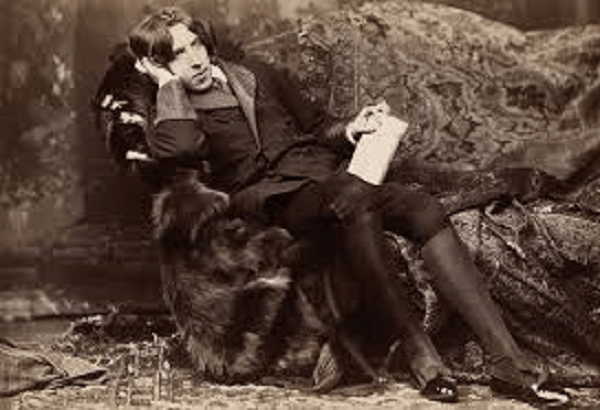
In 1884, while Wilde was delivering a lecture at the Gaiety Theatre, she just happened to be in Dublin. They married on May 29, 1884, in London's Anglican St. James's Church, Paddington, after he proposed to her. Constance had a considerable yearly income of £250 (about £27,700 in today's money), which was significant for a young lady at the time, but the Wildes had very rich tastes. People anticipated that their homes would establish new standards since they had been promoting the importance of design to others for such a long time.
At great expense, No. 16 Tite Street was properly refurbished in seven months. Cyril (1885) and Vyvyan (1888) were the couple's two sons (born in 1886). Oscar Wilde became the only literary signatory to George Bernard Shaw's appeal to release the anarchists detained (and later killed) during the Haymarket Massacre in Chicago in 1886.
Robert Ross and Wilde first met in 1886 at Oxford. Ross, who had previously read some of Wilde's writings, didn't appear to be constrained by the Victorian ban on homosexuality.
According to Richard Ellmann, he was a bright 17-year-old who "was desperate to seduce Wilde, so young and yet so knowledgeable." Daniel Mendelsohn claims that Wilde, who had long made references to Greek love, was "introduced into gay intercourse" by Ross at a time when his marriage was already in trouble due to his physical aversion to his wife's second pregnancy.
Many locations in London were favorites of Wilde's. These included the Hatchards bookstore in Piccadilly, the Hotel Café Royal in Piccadilly, the department shops Liberty & Co. on Great Marlborough Street, and Harrods in Knightsbridge—Wilde was one of the first clients at Harrods to be given extra credit—and the Oscar Wilde Lounge, which offers a classic afternoon tea as a regular service.
Novel
Wilde only wrote one full-length novel, The Picture of Dorian Gray (1890–1891). In the July 1890 issue of Lippincott's Monthly Magazine, the original manuscript of "The Picture of Dorian Gray" appeared as the cover story in a heavily modified form. With a new introduction, Wilde released the expanded and reworked edition as a book in 1891. The Belknap Press of Harvard University released The Uncensored Picture of Dorian Gray in 2012.
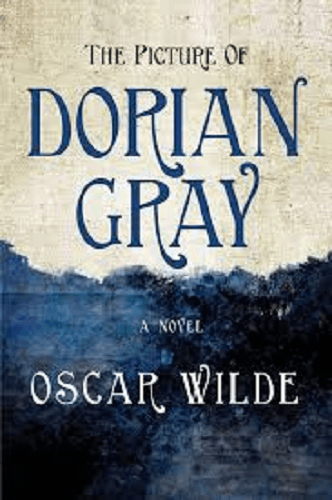
Later Works
On June 20, 1890, Lippincott's journal printed the first edition of The Picture of Dorian Gray. By April 1891, Ward, Lock, and Company had updated it and turned it into a book. Dorian Gray, a stunning young man, is the tale's main character, while Basil Hallward and Lord Henry Wotton are his two significant others.
Lord Henry's beliefs influence Dorian on modern hedonism. In the first chapter, he informs Dorian that the only way to overcome desire is to give in to it. Refusing it causes the soul to become ill with lust for what it has made illegal and terrible through its strange rules and craving for what it has forbidden to itself. He continues to stress the importance of youth in life, leading Dorian to declare when looking at the painting Basil made of him that he would give anything to keep his youth and let the image of an older man take his place.
Upon receiving his desire, Dorian follows Lord Henry's advice and begins on a road of extravagance and passion. The book received different early reviews. Others criticized the book as "tedious and uninteresting," its characters as "puppies," self-promotional, and immoral," while others admired Wilde. Regardless of the reviews, the novel received a lot of attention, especially for the implied gay relationship between Dorian and the other two main characters.
Misattributed
Although Wilde has been given credit for writing Teleny, or The Reverse of the Medal (Paris, 1893), it has yet to be discovered who wrote it. One hypothesis holds that Wilde may have revised a group effort by some of his acquaintances. Constance On September 14, 2011, Wilde's grandson Merlin Holland contested Wilde's claimed authorship of this play entitled Constance, scheduled to open that week in the King's Head Theatre.
Contrary to what its creators claimed, it was not "Oscar Wilde's final play." Wilde outlined the play's narrative in 1894, but he "never wrote a word" of it, according to Holland, who also said that it was immoral to impose the concept on the audience. According to Wilde's son Vyvyan Holland, a considerable percentage of the script in Constance "bears the true imprint of my father's hand."
The King's Head Theatre's artistic director Adam Spreadbury-Maher and producer of the play noted this in 1954. Further evidence suggests that Wilde wrote the full picture from which Constance was reconstructed between 1897 and the year of his death in 1900, not the 1894 George Alexander scenario that Merlin Holland cites.
Imprisonment
Wilde was imprisoned from May 25 to May 18, 1897.
He initially checked into Newgate Prison in London for processing before being transferred to Pentonville Prison, where the "hard labor" to which he had been condemned consisted of many hours of treadmill walking and selecting oakum (separating the fibers in remnants of old naval ropes), and where convicts were only permitted to read The Pilgrim's Progress and the Bible.
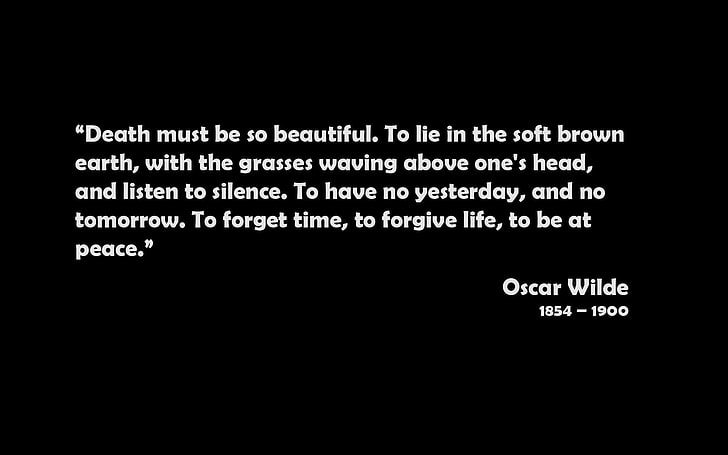
He was sent to London's Wandsworth Prison a few months later. The "hard labor, hard fare, and a hard bed" schedule were followed by prisoners there, which negatively impacted Wilde's precarious health. He passed out in the church in November due to sickness and hunger. In the fall, he perforated his right ear drum, an injury that ultimately led to his death. He was in the hospital for two months.
On November 23, 1895, Wilde was visited by Liberal MP and reformer Richard B. Haldane, who arranged for his transfer to Reading Gaol, located 30 miles (48 km) west of London. The moment of his imprisonment when he was being transferred was the worst because, at the train station, a group of people shouted and spat at him. He served the balance of his term there, where he was known as "C.3.3" and the prisoner of cell number three on the third level of the C ward.
Charles Thomas Wooldridge, a soldier in the Royal Horse Guards, was transported to Reading around five months after Oscar Wilde moved there to attend his trial for killing his wife on March 29, 1896. On June 17, 1896, Wooldridge was given the death penalty and sent back to Reading for his execution, which happened on July 7, 1896, the first hanging at Reading in 18 years. The Ballad of Reading Gaol, which Wilde subsequently penned, was inspired by Wooldridge's hanging.
Even paper and pens were first forbidden to Wilde, but Haldane ultimately succeeded in getting him access to books and writing supplies. Along with the French translation of the Bible, Wilde also asked for writings by St. Augustine, Cardinal Newman, and Walter Pater, as well as some ancient Greek texts, Italian and German grammar, Dante's Divine Comedy, and the new French book En route by Joris-Karl Huysmans on Christian redemption.
Between January and March of 1897, Wilde wrote a 50,000-word message to Douglas. Although he was a colorful role, of allowed to retain it after he was freed, from authorized was not au resized to mail it. In a thoughtful mood, Wilde calmly reviews his professional life by describing colorful how agent provocateur in Victorian society with work that, like his contradictions, sought to undermine and shine. He saw himself as someone who "stood in symbolic links to the art and culture of my age," in his own words.
His relationship with Douglas started from these heights, and Wilde pays great attention to it, rejecting Douglas for what he eventually perceives as his ego and self-interest: he had not missed Douglas' statement from when he was unwell, "When you are not on your pedestal you are not fascinating." But Wilde admitted that he was to fault for the moral decline in personality that he had enabled Douglas to cause in him, saying, "I am here for having sought to put your father in prison." As the first half comes to an end, Wilde pardons Douglas—for both his benefit as well as Douglas'. The letter's second part follows Wilde's spiritual quest for fulfillment and forgiveness, as revealed to him when he was reading in jail.
Even if it was terrible at the time, he understood that his trial had given his soul the benefits of experience. I yearned to consume the fruit from every tree in the global garden. I went outside, and as a result, I survived. My only error was that I restricted myself to the trees on what looked to be the garden's sunnier side and avoided the other side due to its darkness and gloom.
On May 19, 1897, Wilde was released and departed on a ship that evening destined for Dieppe, France. He never went back to the UK.
When he was freed, he sent Ross the book, and it's possible that Ross followed Wilde's orders to give a duplicate to Douglas (who later disagreed, having received it). The entire letter was initially published in its entirety in 1962 in's The Letters of Oscar Wilde after being released in part in 1905 under the title De Profundis.
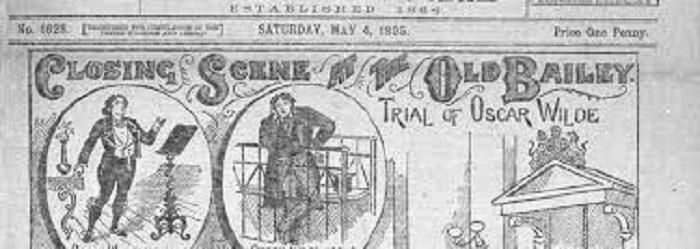
Honors
On February 14, 1995, Wilde was honored with a stained-glass window at Westminster Abbey's Poets' Corner. In addition to Sir John Gielgud and Dame Judi Dench reading passages from De Profundis and The Importance of Being Earnest, the memorial, which is located above the statue of Geoffrey Chaucer, was also dedicated by Merlin Holland, the poet's grandson.
A "walk of fame" in San Francisco's Castro district that recognizes LGBTQ persons who have "made major achievements in their industries" was inaugurated in 2014, and Wilde was one of the original recipients.
The McDermott & McGough work, The Oscar Wilde Temple, debuted at New York City's Church of the Village in 2017 before moving to Studio Voltaire in London the following year.